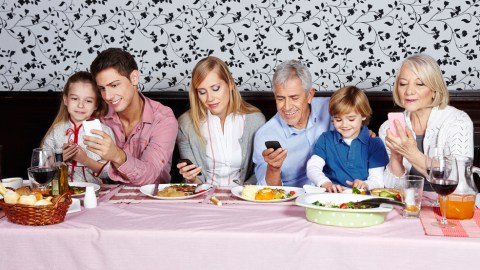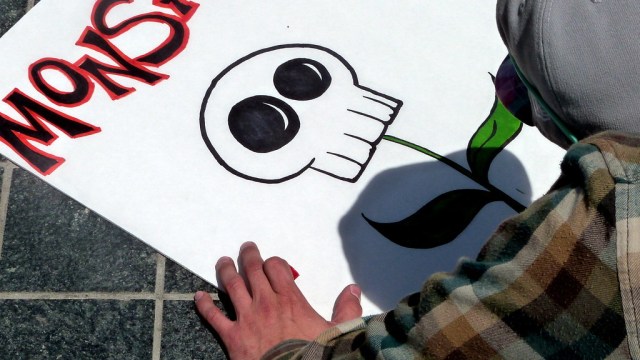Restaurateurs Wage War on Smartphone Use

What’s the Latest?
If you’re checking Facebook instead of ordering food, posting on Instagram as your meal gets cold, or haranguing a bartender into letting you charge your phone… you may just be the bane of a restaurant owner’s existence.
Washington City Paper reporter Jessica Sidman, who writes for that publication’s “Young and Hungry” column, reached out to some of D.C.’s top restaurateurs on the topic of smartphones and how they’ve changed the dining experience. Even though Sidman focuses on Washington establishments, everything mentioned in the piece is fairly universal. Although there were a few exceptions, most of the restaurateurs painted smartphone use as a scourge either to be eradicated or unhappily endured.
What’s the Big Idea?
Sidman begins by explaining how a number of bars and restaurants in the capital city have instituted strict no cell phone policies. The aims of such prohibitions vary — either the establishment prides itself on the foodie experience and wants to cut out distractions, or they find real-time social media posts to be detrimental to the restaurant’s well-being. The latter is the case for the owner of Cork Wine Bar:
“We saw some pictures of our food online, and they didn’t look so hot,” says owner Diane Gross. “So we were a little bit concerned about things popping up on the web that weren’t professionally done.”
This isn’t just a case of the “McDonald’s Effect.” Photos of half-eaten meals taken in a dark room have the potential to look lousy. Other restaurant owners interviewed take the opposite stance — a customer Instagramming their food can only be seen as good publicity.
One owner mentions to Sidman that 1 in 10 customers will ask about charging a phone, something that can be both a distraction and liability. Some establishments have added more outlets and boosted Wi-Fi to accommodate these types of patrons. Other restaurants and bars have tried to push back.
Take a look at the piece (linked again below). No matter where you fall on the spectrum of smartphone etiquette, it’s fascinating just to observe the ways a traditional industry has had to adapt to a new culture steeped in technology.
Keep reading at Washington City Paper
Photo credit: Robert Kneschke / Shutterstock




